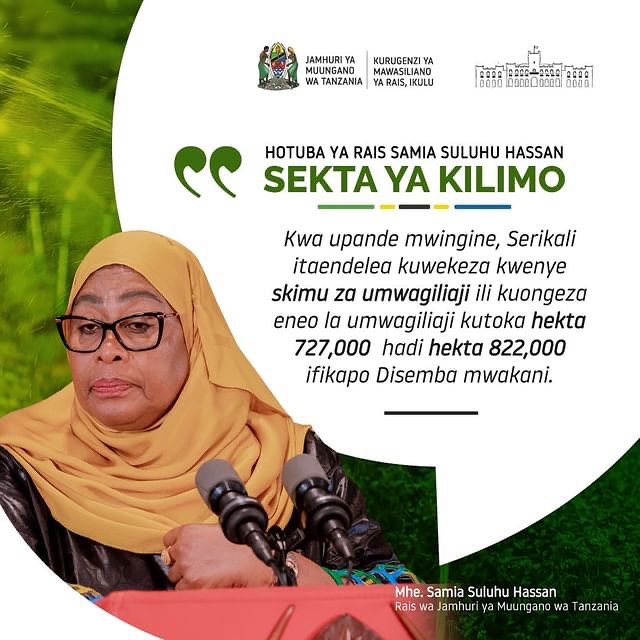On February 14, 2024, a significant gathering took place in Oslo, Norway, marking a pivotal moment for Tanzania’s agricultural sector and its approach to climate change. The Food Security and Climate Change Cooperation Meeting held at the Climate House in Oslo, brought together key figures from Tanzania and Norway to discuss critical issues affecting both nations and the global community.
Presidential Leadership and International Collaboration
The event was graced by the presence of Her Excellency Dr. Samia Suluhu Hassan, President of the United Republic of Tanzania, who delivered a compelling address on the challenges and opportunities facing Tanzania in the realms of agriculture and environmental conservation. The meeting also saw the participation of Tanzania’s Minister of Agriculture, Hon. Hussein Bashe, who played a crucial role in the discussions.
From the Norwegian side, the conference was attended by notable figures including His Royal Highness Dr. Seleman Jafo, representing the Royal Norwegian Government, Hon. Anne Beathe Tvinnereim, Norway’s Minister of International Development, and Hon. Tine Tonnes, emphasizing the high level of importance both countries placed on this event. The ambassadors of Norway to Tanzania and Tanzania to Norway, respectively, further underscored the diplomatic significance of the summit.
A Focus on Food Security and Climate Change
The primary agenda of the meeting was to address the pressing issues of food security and climate change, areas where both Tanzania and Norway have shared interests and face common challenges. The discussions aimed at exploring sustainable investment opportunities in agriculture, with a keen eye on climate-resilient practices that could benefit Tanzanian farmers and the wider economy.
President Samia Suluhu Hassan highlighted Tanzania’s commitment to enhancing its agricultural sector, recognizing it as a cornerstone of the nation’s economy and a vital component of its strategy to combat climate change. The president outlined initiatives to promote sustainable farming techniques, improve water management, and encourage the adoption of renewable energy sources among agricultural communities.
Strengthening Bilateral Relations
This meeting was not just about addressing global challenges but also served as a platform to strengthen the bilateral relations between Tanzania and Norway. The collaborations discussed extend beyond immediate agricultural concerns, touching on technological exchange, research and development, and capacity building for Tanzanian stakeholders.
Norway’s expertise in renewable energy, particularly in hydroelectric and wind power, was identified as a valuable resource for Tanzania, as it seeks to diversify its energy sources and reduce its carbon footprint. Meanwhile, Tanzania’s rich biodiversity and potential for sustainable agriculture offer Norway an opportunity to invest in green technologies and support global food security.
The Way Forward
The outcomes of the Oslo summit are expected to pave the way for a series of collaborative projects and initiatives aimed at bolstering food security in Tanzania while addressing the broader challenges of climate change. Both nations have committed to ongoing dialogue and partnership, recognizing that the issues at hand require sustained effort and cooperation.
Key agreements from the meeting include the development of joint agricultural research programs, the establishment of green technology transfer mechanisms, and the creation of investment funds to support climate-resilient agriculture in Tanzania. Furthermore, the summit underscored the importance of involving local communities in these initiatives, ensuring that the benefits of such cooperation are felt at the grassroots level.
The Food Security and Climate Change Cooperation Meeting between Tanzania and Norway marks a significant step forward in the global fight against climate change and the quest for sustainable development. By focusing on agriculture—a sector that is both vulnerable to and capable of influencing climate change—these nations are setting an example for international collaboration towards a more sustainable and food-secure future.
As the world grapples with the dual challenges of ensuring food security and combating climate change, the partnership between Tanzania and Norway serves as a beacon of hope. It demonstrates that through mutual understanding, shared goals, and collective action, it is possible to make significant strides in addressing some of the most pressing issues of our time.
